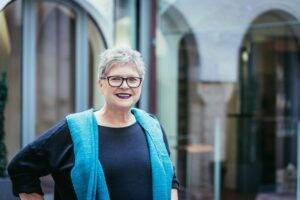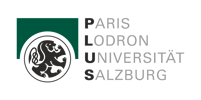Ass.-Prof. Dr. Ursula Maier-Rabler r.

Mail: Ursula.Maier-Rabler@plus.ac.at
Ursula Maier-Rabler, communication scientist, assistant professor and deputy head of the “Center for ICT&S” at the Department of Communication Science at the University of Salzburg. She is the founder and long-time academic director (2002-2011) of the university’s ICT&S focus, the predecessor institution of the current Center for ICT&S. In her teaching and research, she focuses on the phenomenon of digitalization and its interrelationship with democracy and civic participation, the future of work, Education 4.0 and everyday life. Her main interests center around the potential of digital technologies for a balanced, just and good society.
She is currently co-coordinator of the Master’s exchange cooperation Shanghai-Salzburg “MCM-Media and Communication Management” (currently suspended due to Corona!) and head of the Consortium Board of the Erasmus+ Joint Master ” Digital Communication Leadership” (DCLead). Since 2004 she has been project manager for the summer university ” ditact_woment’s_IT_summer_school” for women in IT. She was chairwoman of the board of the Demokratiezentrum Wien ( polipedia.at) until 2018 and is currently a board member of the Salzburger Bildungswerk. Since January 1, 2021, she has again been President of the Salzburg Chapter of the European Women in Management Development Network ( EWMD) and Chairwoman of the non-partisan initiative “Salzburg 2024” – For a different culture in the city and province of Salzburg. In this capacity, she is a member of the steering group of the “Salzburg 2024 Cultural Strategy: Culture.Life.Spaces”. Since 1990, she has regularly taught in bachelor’s, master’s and doctoral programs in “ICTs & Society” and is often invited as a speaker on these topics.
- Internet & Society / Digital Society
- Datafication / Digitization II
- Digital Literacy/Empowerment/Capabilities/Future of Education
- e-policy research
- e-democracy/e-participation
- youth and participation
- Information-Cultures
- Open Data / Open Data Government
- IAMCR – International Association for Media and Communication Research. (Former Section Head of “Communication Technology and Policy Section – CTP)
- ICA – Member from 1993-2014
- Österreichische Gesellschaft für Kommunikationswissenschaft (Chairwoman1996-2002)
- EWMD – European Women in Management Development Network. Austria President 2013-2015; Salzburg President 2006-8 and 2011-13
- Chief Executive Officer (2012-2018) “Demokratiezentrum Wien”
- Board member of the Salzburger Bildungswerks
- Management Board Initiative Salzburg 2024
You can find the current research documentation here.

